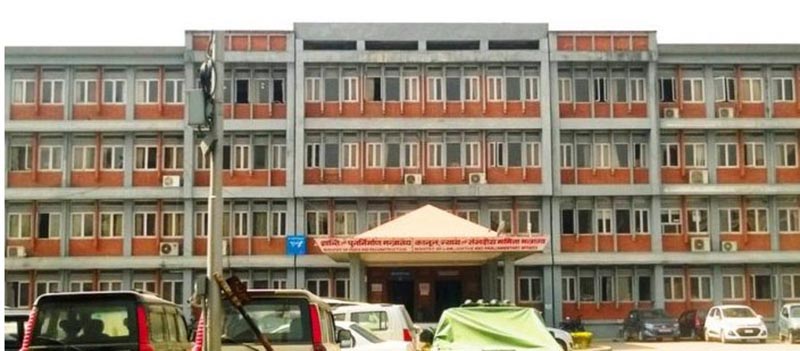Mass media draft bill draws heavy flak
Kathmandu, May 13
The KP Sharma Oli-led government which has drawn flak from civil society members and opposition parties over its restrictive provisions against the press in some recent bills appears to be unfazed by criticism as it continues to propose heavy penalty for erring journalists in the new bills.
The draft bill on mass media is the latest case in point. The bill proposes to impose 10 to 15 years jail term and a fine up to Rs 10 million on journalists for publishing or broadcasting any content in national and international media that undermines national sovereignty, geographical integrity or nationality. The bill proposes a minimum fine of Rs 5 million for these offences.
The bill proposes to impose a jail term of three to eight years and a fine of Rs 100,000 to 500,000 or both on journalists for undermining relations between various federal units, and spoiling communal harmony between various castes, ethnic groups, religions and faiths.
The bill also proposes to impose a jail term between five and 10 years and a fine between Rs 1 million and 1.5 million or both if journalists are found guilty of sedition and contempt of court and an act incitement for a crime.
The bill proposes to impose a fine between 300,000 and Rs 1 million for the offence of defamation. The court can also order erring journalists to pay compensation to the aggrieved party.
Former president of the Federation of Nepali Journalists Shiva Gaunle said while the government would be within its right to regulate the press, it had no power to bring a new law with the objective of controlling the press. The government can justify enactment of new law only if there is a risk of serious harm in the absence of new law.
Proposing to impose jail term of 10 years or more is a mockery of democracy, he argued. Gaunle said if the government registered the bill in the Parliament with provisions of strict penalty, then that could be challenged in the domestic court and the issue could also be raised in international fora.
“Our government also has international obligation to uphold press freedom as it is a signatory to the International Covenant on Civil and Political Rights. If the government attempts to control the press, it will have difficult time defending its moves in the international fora,” he added.
Secretary of the Federation of Nepali Journalists Ramesh Bista said the government had prepared the draft without discussing the provisions with stakeholders. “The draft bill proposes to impose heavy fine and jail term on journalists. If this bill is enacted into law, journalists will resort to self-censorship and this will be bad for press freedom,” he said. He said the FNJ, which is already up in arms against the government over the restrictive provisions in Nepal Media Council Bill, would have no alternative but to resort to protest against the Mass Media Bill. “Yet another restrictive bill against the press indicates that the government is not ready to tolerate criticism,” he said and added that the government should not think of curtailing press freedom just because one or two journalists act irresponsibly.
Spokesperson for the Ministry of Law, Justice and Parliamentary Affairs Dhanaraj Gyawali told THT that the concerned division of the ministry had been working on the draft, but refused to deny or confirm the provisions related to punishment. “Draft provisions are revised many times and provisions of initial draft may change in the final draft,” he said.
READ ALSO:






